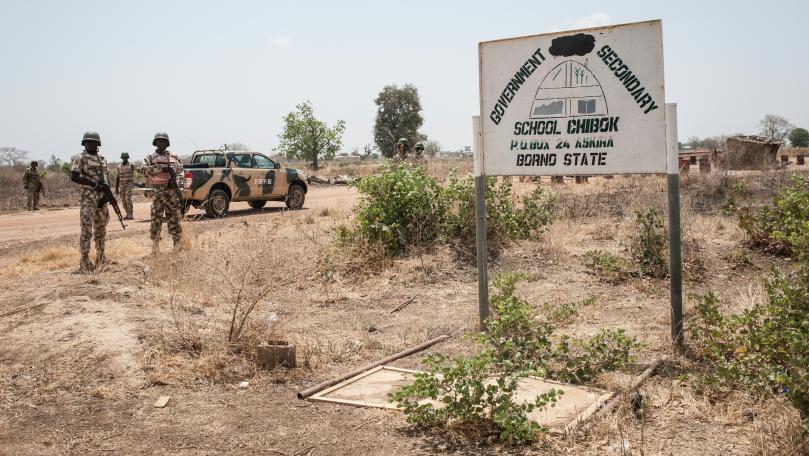Breaking News
Most Public Schools In Borno State Are Still Unsafe Over Two Years After Chibok Abduction

Despite the abduction of over 200 students from Chibok in 2014, and the wide publicity the attack received, most public schools in Borno State are still unsafe over two years after, a new report says.
The research, conducted by Women Advocate Research and Documentation Centre (WARDC) in conjunction with Gender Equality, Peace and Development Centre (GEPaDC), says public schools are not safe for learning in the state.
The report followed a baseline research in three key local government areas, namely, Maiduguri, Chibok and Konduga.
The study found that of all the schools surveyed, none had a recent safety and security training, except in Chibok where one school had a training in November 2015.
Other findings include:
*Only very few schools have security committees. These are mostly in Chibok LGA where the girls were abducted.
*There are inadequate number of security personnel ranging from 1 – 2 personnel in all schools.
*The communication strategy in the schools is almost non-existent since where they exists, not everyone is aware of them in the schools.
*Classrooms are overcrowded with an average number ranging from 38 to 94.5 pupils per classroom
*Some classrooms have exit doors and some do not have and even where exit doors are available most are not clearly labelled. This portends great danger for a stampede if an emergency situation should occur when there is only one door for entering and exiting such overcrowded classrooms.
*Only very few schools screen people as they come into the schools and most schools allow all sorts of hawkers into the schools.
Until last week, 219 of the abducted Chibok schoolgirls had remained in captivity.
Twenty one were released after negotiations with the extremist sect, Boko Haram.
The group, whose name translates to “Western education is sin”, has for years targeted schools, students and teachers.
As of 2013, even before the Chibok abductions, the insurgents had destroyed 50 out of the 175 public schools in Borno state, of which 823 classrooms were destroyed, the report said.
It says some 460 teachers and about 319 students were killed in only Maiduguri and environs when the militants invaded schools.
Borno government closed all schools on March 14, 2014, amid growing attacks, leaving 253,000 pupils and students of primary and junior secondary schools at home. The schools were recently reopened.
Presenting the report on Wednesday, Patricia Donli, an Executive Director at the GEPaDC, said “about 15,000 children in Borno state have stopped attending classes since February 2013 according to a Borno state Ministry of Education Official who preferred anonymity; most of these children are primary school children”.
She said the insecurity in public schools led to a rise in attendance in Islamic schools, seen by parents as a safer option.
“Unfortunately, most of these schools do not offer core subjects so that graduates of such schools though versed in koranic education are deficient in western education and hence not able to enroll in secondary schools. But even at that, BH killed some students of one Islamic secondary school in Maiduguri as the students came out of the WAEC/NECO examinations,” she said.
Founding Director of WARDC, Abiola Afolabi, said “There is need for us to have reflection on what is happening in our educational institutions to see whether there is need for us to even declare a state of emergency on the institution itself”.






